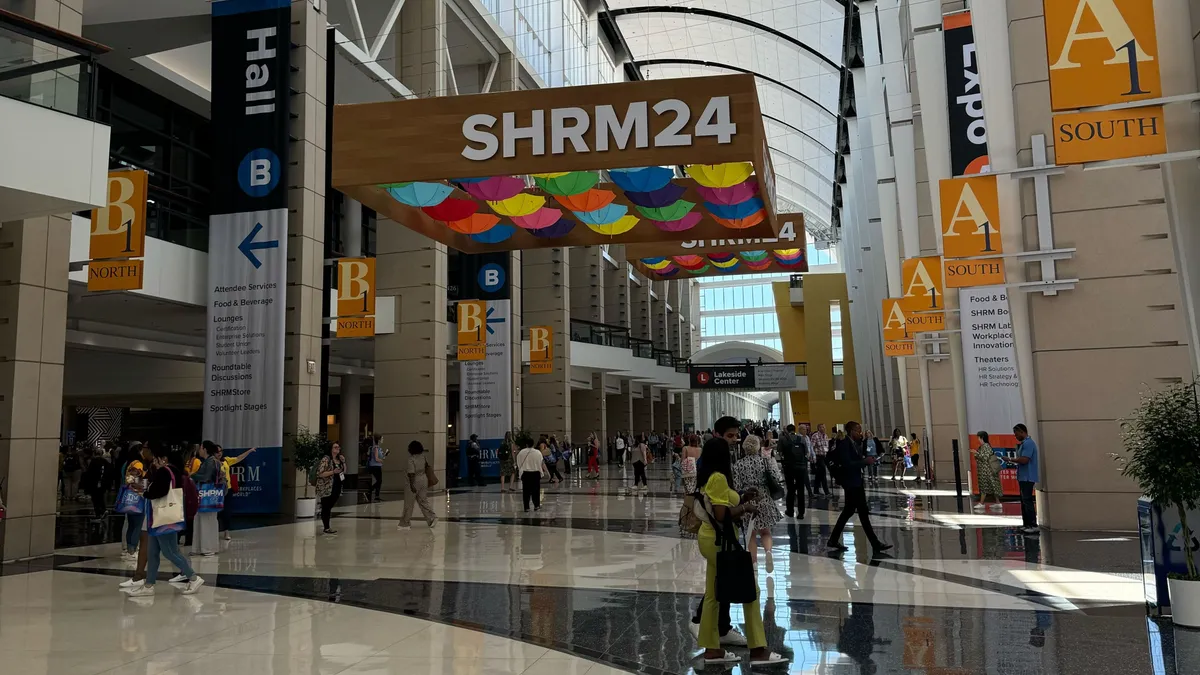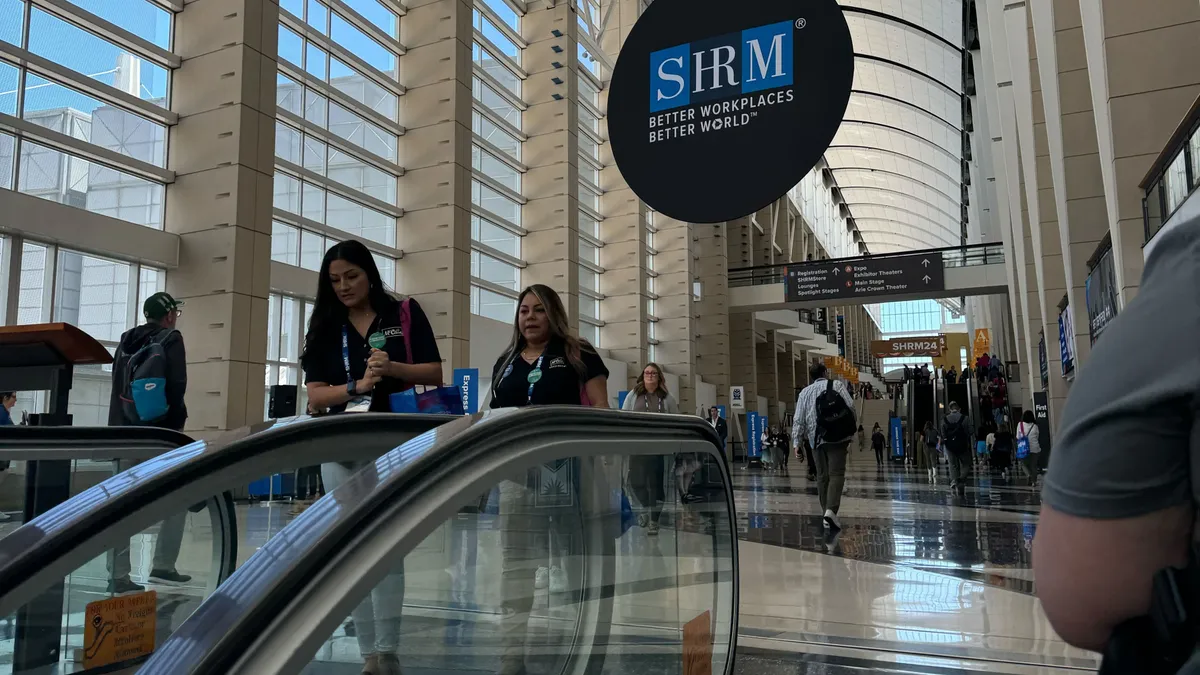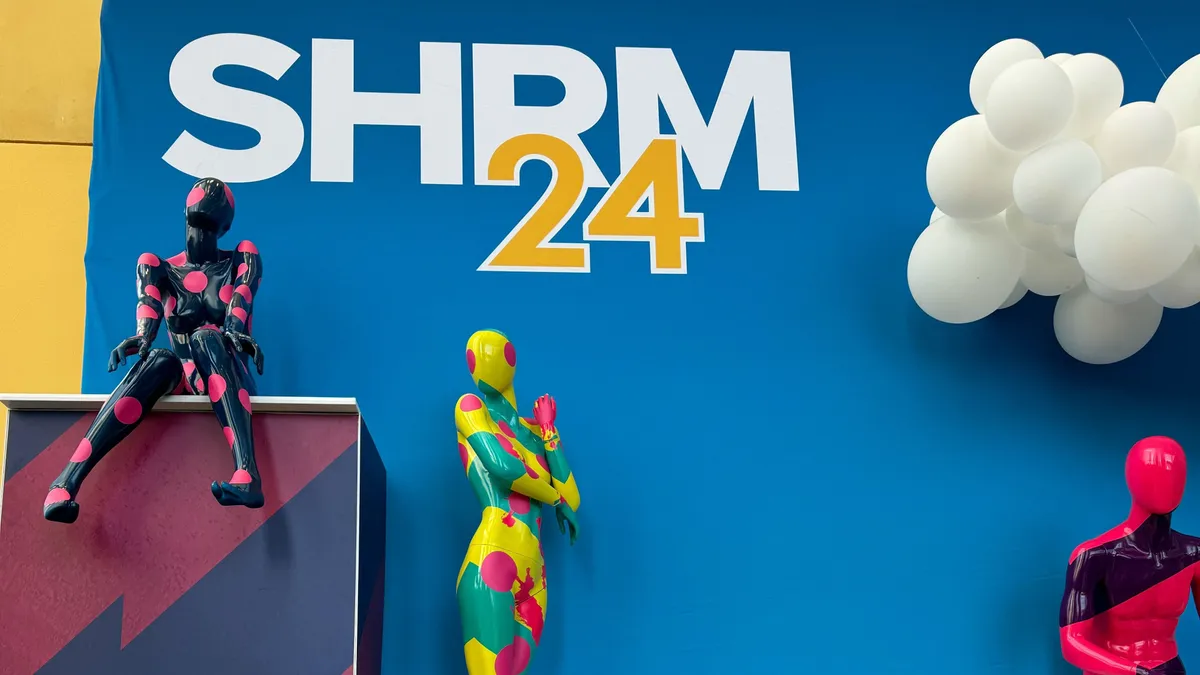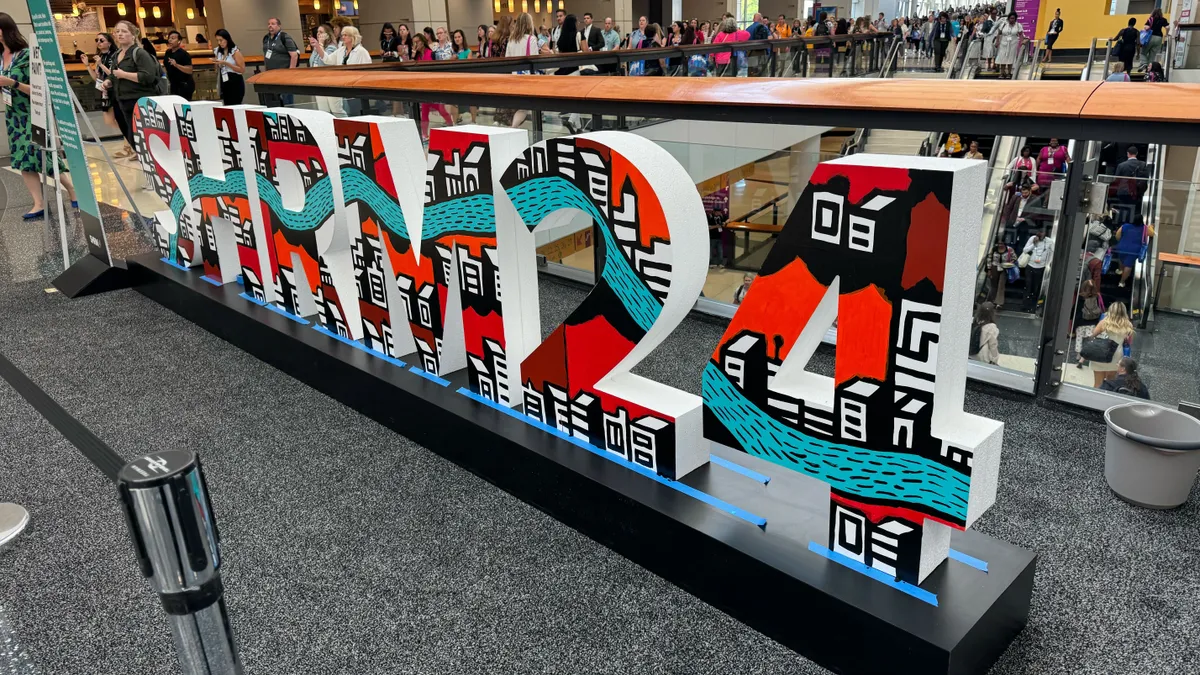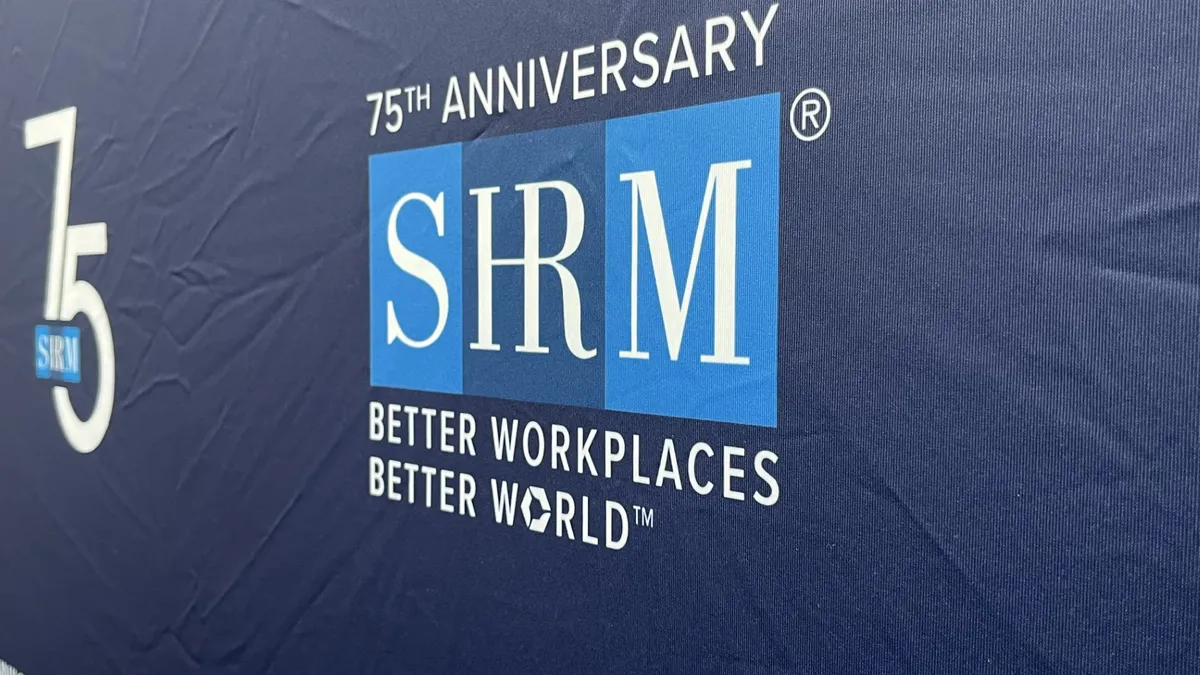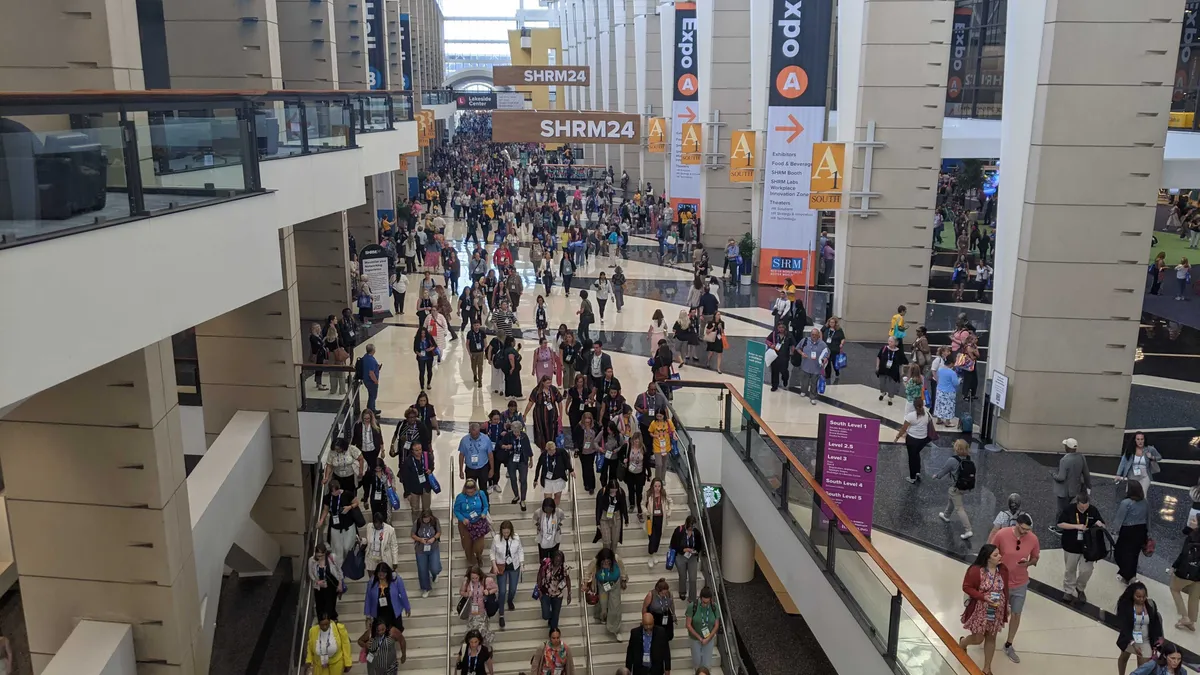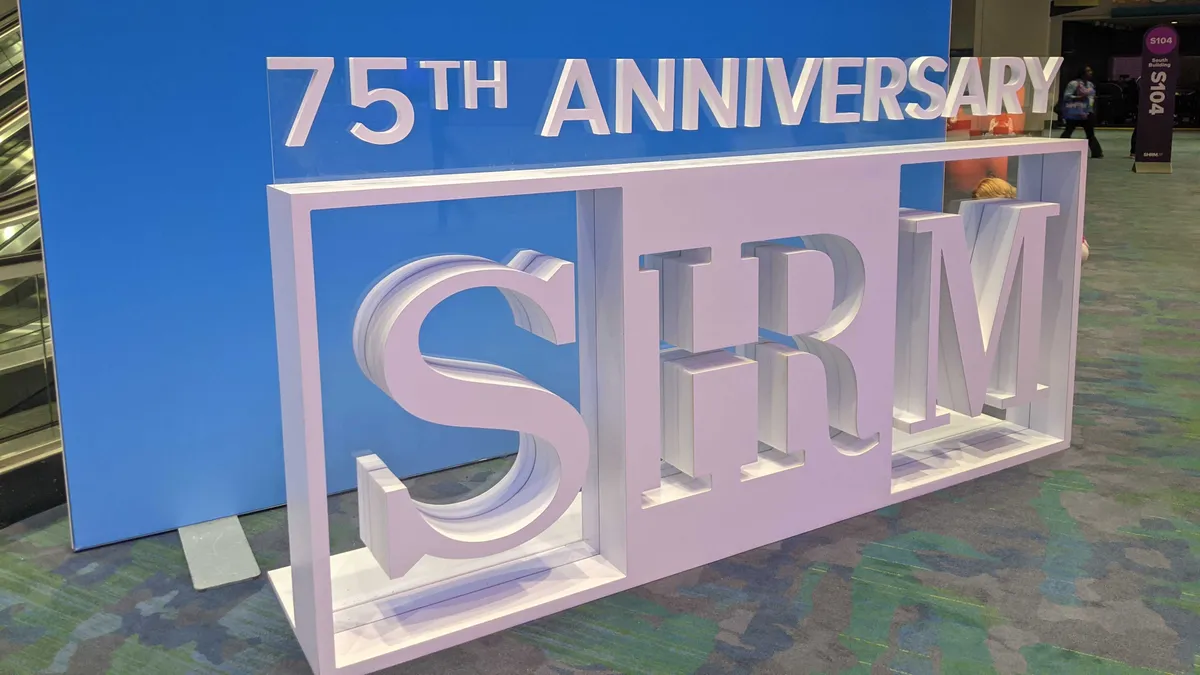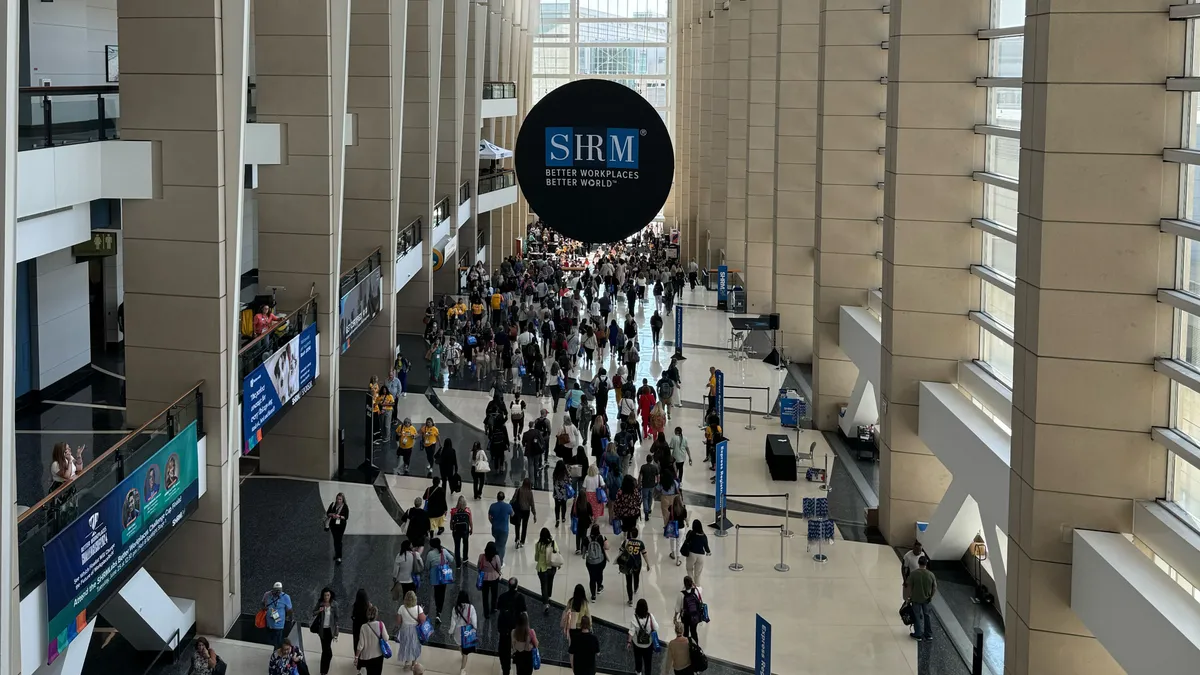CHICAGO — The HR profession is facing a “polycrisis,” SHRM CEO and President Johnny C. Taylor Jr. said Monday in the Society for Human Resource Management’s annual conference opening session, outlining a formidable set of challenges the profession faces in the coming years.
The message comes when workers and managers are already drained and may be enjoying relative calm. After the first years of the COVID-19 pandemic and the racial reckoning sparked by the murder of George Floyd, HR pros may feel the most significant societal disruption in years has passed, Taylor said.
But even bigger disruptions are coming, Taylor asserted: “A storm is coming for HR.”
The need for upskilling
Taylor pointed first to an education system that he says isn’t keeping up with the demands of the workforce. He took issue with the state of K-12 curriculum, and said the pandemic was a “wrecking ball into U.S. public education.”
Students have fallen behind in math and reading skills, and chronic absenteeism is a lingering problem post-pandemic. As a result, students will graduate even more ill-prepared for the workforce than they currently are, with deficits not just in reading and math but also in essential professional skills like critical thinking, problem solving and adaptability, Taylor said.
At the same time, with changes in technology and other advancements demanding new skill sets, “we’re asking more of our workers than ever before,” Taylor said. “We’re asking them, in short, to be superhumans.”
“What education can’t do, HR is now going to have to do,” Taylor said. High school and college graduates will need to be put on a learning pathway to develop their skills, and older workers — the fastest-growing segment of the workforce, he noted — will need targeted training as well.
The volatility of AI
The rise of artificial intelligence — and the transition to its widespread use in the workplace — is another challenge facing the HR profession, Taylor said. He cited data showing that currently, only 12% of HR pros and 15% of workers believe organizations are using AI effectively.
If used correctly, AI could be a “golden opportunity” and “an enhancement for the workforce, Taylor said. But that requires HR to shelve its defensiveness, and to join every conversation about AI in the workplace. The need is urgent, Taylor said, as the AI revolution in the workplace is inevitable, not a “maybe.”
The future forecasters project that AI will be everywhere within just a few years, Taylor said — and the proliferation of AI-driven jobs will be one of the most volatile social and political issues of our time. “This is what keeps me up at night,” he said.
“Thirty percent of the world’s workforce will be made jobless because of AI in the next 7 years,” Taylor said. “Wall Street is literally salivating over the cost savings that they can get out of having fewer employees.” While new jobs will be created, Taylor said, there won’t be anything approaching one-to-one parity.
HR must “run headlong into this issue,” Taylor said, promising SHRM would be fully in the mix as policymakers make decisions about the AI deployment and policy — no matter what political party or leader is running the show. He also pointed to the organization’s new chief data and insights function and to a wealth of resources SHRM is pouring into AI research.
An increasingly uncivil workforce
Finally, Taylor said civility is under threat at work, noting that while people generally are similar and want the same thing in the grand scheme, “things have gotten ugly” in the workplace. “We’re as diverse as we’ve ever been but as divided as we’ve ever been,” he said.
Taylor pointed to SHRM data that two-thirds of workers have witnessed or experienced incivility in the past month — and that most don’t think HR can or will do anything about it.
Widespread incivility is more than a culture issue, Taylor noted. Conversations the organization has had with the U.S. Equal Employment Opportunity Commission have suggested uncivil behavior is a “gateway drug” to workplace harassment, leading to compliance issues as well.
What happens at work can profoundly influence people and HR pros are “in a special position” to set the bar for workplace civility, Taylor said.
Overall, Taylor said, HR has its “work cut out for [it]” in 2024. “I’m asking you to … choose the courage to run toward the storm.”








